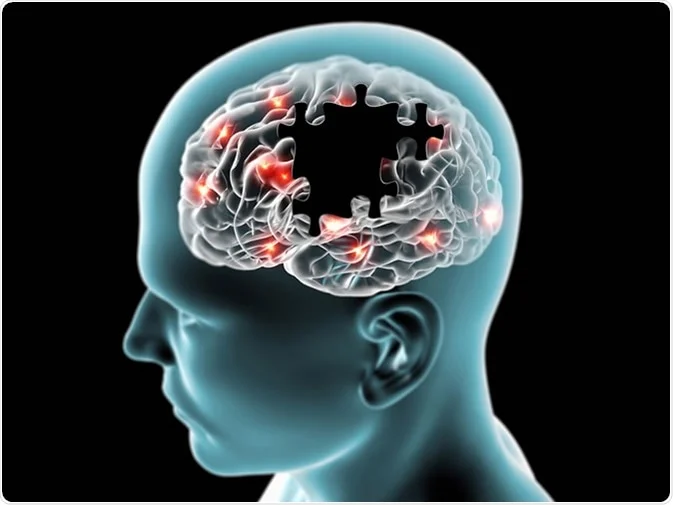The hippocampus, a small, seahorse-sized region of the brain, controls most of human memory and learning.
This region plays a critical role usps liteblue in several vital brain processes, such as converting short-term memories into long-term ones, controlling our emotions, and enabling spatial navigation (to plan where to go and how to get there).
The hippocampus often shrinks a little bit as we age. However, in some medical conditions, such as Alzheimer’s disease, this volume loss happens more quickly.
In individuals with Alzheimer’s, hippocampal volume loss is frequently detected early on and typically occurs before cognitive impairment symptoms.
The presence of accumulating proteins in the brain, notably the proteins amyloid beta and tau, has also been related to cognitive deterioration in patients with and without Alzheimer’s disease.
However, a recent study published in the journal Neurology demonstrated that hippocampal shrinkage promotes cognitive deterioration in people with or without brain amyloid or tau [1]. This discovery may have implications for the treatment of other neurodegenerative diseases in addition to Alzheimer’s disease.
The Study
Scientists collected data from 128 older persons over a ten-year span to perform their study. At the start of the trial, there were no indications of cognitive impairment in the participants.
Throughout the trial, the researchers gathered data on the participants’ performance on cognitive tests. They also performed brain bluelite post office imaging scans to assess the amount of each participant’s hippocampus and see if they acquired additional signs of cognitive problems in the brain, like tau tangles and amyloid plaques.
Tau and beta-amyloid are both essential proteins for proper brain function. However, in diseases like Alzheimer’s, these proteins become toxic and aggregate. Amyloid plaques cluster on the exterior of neurons, whereas tau tangles destroy neurons from the inside out.
They discovered a correlation between hippocampal atrophy and cognitive deterioration. It continued to hold true even after they eliminated the impact of tau and amyloid from their analysis.
Additionally, they discovered that a person’s cognitive deterioration happened more quickly the quicker this shrinkage happened. Furthermore, the shrinking occurred faster in those whose hippocampus volume was smaller at the beginning of the trial.
Hippocampal Volume
The findings suggest that dementia and Alzheimer’s disease might have at least two distinct pathways leading to cognitive loss. One mechanism results from amyloid and tau buildup in specific brain regions, whereas the other involves hippocampal volume decrease.
The results also imply that hippocampal shrinkage-induced cognitive deterioration might indicate another ailment. According to the study’s authors, measuring hippocampus volume may be a helpful biomarker—a disease indicator—for identifying other disorders that influence cognitive decline.
They also believe that this discovery might predict whether a person would benefit from medications that delay the course of Alzheimer’s. Hence, drugs that target amyloid plaques are unlikely to have any effect if a person’s cognitive impairment is primarily due to hippocampal shrinkage.
Notwithstanding their thorough analysis, the researchers do admit that there is some unexplained variation in the data. For example, while some individuals exhibited modest volume loss and greater degrees of cognitive deterioration, others had hippocampus shrinkage but no symptoms of cognitive decline.
They link this to lifestyle choices, heredity, or other neuropathologies, including Parkinson’s disease and Lewy body dementia caused by alpha-synuclein. It is not possible to quantify this by concentrating on hippocampal volume.
They also note that their data originated from a sample that is not typical of the general population. The majority of the participants were white and well-educated. Furthermore, as this was a group research, individual variations in lifestyle and genetics were not examined.
Future research should explore the relationship between hippocampus volume and cognitive impairment in a broader population.
Brain Health
Apart from Alzheimer’s, individuals with several other disorders, including Cushing’s disease, depression, PTSD, anxiety, and anxiety, have also been shown to have a reduced hippocampal volume.
Additionally, some lifestyle choices may exacerbate hippocampal volume decrease. For instance, an inadequate diet and excessive alcohol use, even in youth, can lead to a reduced hippocampal volume.
However, research has indicated that physical activity, such as yoga, aerobics, and workouts, can enhance hippocampus volume in older adults.
Therefore, although there are bluelite usps several causes of cognitive decline, maintaining a healthy lifestyle may help to prevent or delay it.
This study demonstrates that tau tangles and amyloid plaques are not the sole factors that cause cognitive deterioration. However, they also show how the different triggers can operate in tandem or separately from one another.
Future studies should concentrate on creating assessments and indicators that might identify early stages of cognitive deterioration in individuals. Furthermore, research should focus on therapies that target the many elements that contribute to cognitive decline.
Alzheimer’s Research Association is a non-profit organization dedicated to helping caregivers of Alzheimer’s disease and dementia. We provide the latest information and news about the illness and helpful tips to help caregivers cope with their daily caregiving challenges. We realize the most important thing that a caregiver needs is financial assistance. Therefore, we provide grants to caregivers to ease their financial burden. Caregivers can apply for grants here: Alzheimer’s Grant Application.
You can also help caregivers in their endeavor by donating as much as possible: Donation To Alzheimer’s Research Associations.

